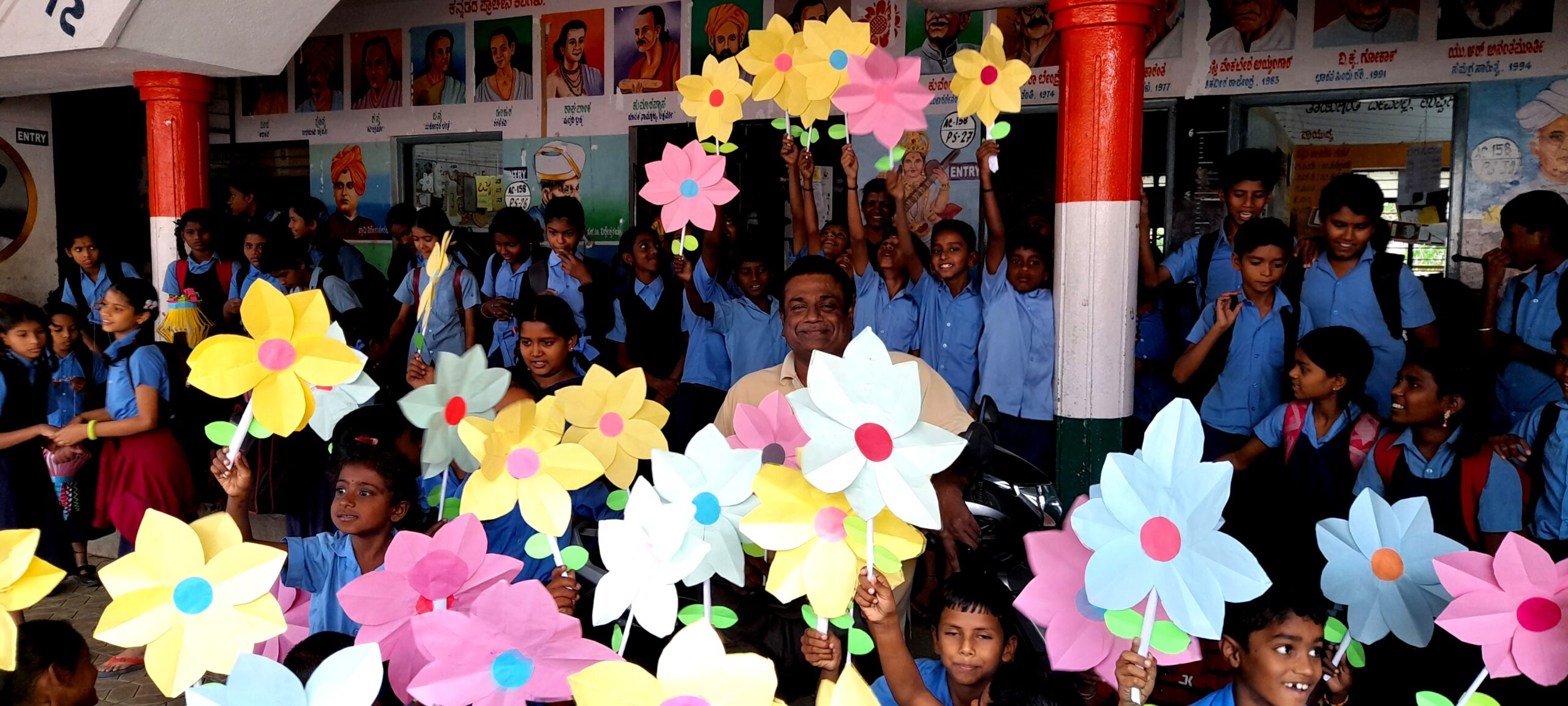Bengaluru-based Mathematician, Mahesha M's one-of-a-kind institute, Prajna Mathemathics, is putting magic in learning Maths.

Bengaluru-based mathematician, Mahesha M set up Prajna Mathematics. (Supplied)
Mention the word Maths and it is not uncommon to receive reactions associated with a reasonable amount of dislike, disinterest, and even fear among children.
It is a subject that you either love or hate but cannot ignore! Learning Mathematics is fun for some, for others, it is pure boredom, and for many others, the thought of Maths brings an irrational fear of numbers.
To bust these myths, Bengaluru-based mathematician, Mahesha M set up Prajna Mathematics.
Prajna, which translates into “awareness” in Kannada, follows a simple mantra — make Mathematics relatable.
Mahesha nurtured a love for numbers since childhood. He spent most of his time indoors as polio left him physically challenged.
“I spent a large amount of time playing and counting with marbles. Despite a lack of guidance and financial difficulties, I managed to complete my degree in computer science engineering and have worked in the corporate sector for 15 years,” he says.
Mahesha always taught children from financially disadvantaged backgrounds. In 2017, he shifted to full-time teaching and established Prajna Mathematics in Hebbal. Here, he taught students from Classes 3 to 10.
“I just select students based on their interest to learn and passion to excel. No child should sacrifice their education just because they are not economically well off,” says the 49-year-old, who has always been tutoring students for free.
A key differentiator of Prajna is that they they use techniques like visual aids, Vedic Maths, and mental Maths to help children understand the concepts.

Prajna follows concept-based teaching, practical applications, and model-making approach. (Supplied)
The focus is on logic, intuition, and analytical thinking. Also, students are encouraged to apply Maths to real-life situations. Besides this, concepts of Algebra and Geometry are taught using visual tools. And concepts of multiplication for numbers are reinforced using elements like splitting and distributive property.
Advanced multiplication techniques, long division, and Vedic division are just some of the other concepts that are taught in the institute. Phonetic codes are taught to improve memory power along with different ways to verify the correct answers to problems.
“Our concept-based teaching, practical applications, and model-making approach, has ignited a passion for Mathematics amidst countless students,” quips Mahesha whose team has five other teachers.
Mahesha also uses the Rubik’s cube extensively to improve focus and concentration.
“We recently taught the Rubik’s cube to hundreds of government school children. It was really refreshing as most of these kids were hooked to their mobiles during the pandemic,” adds Mahesha.
He recently completed a Rubik’s cube workshop successfully for a group of special students. The Association of People with Disability coordinated this session.
According to Mahesha, it helps improve hand-eye coordination, spatial awareness, fine motor skills, problem-solving skills, social interaction and builds confidence in such children.
Furthermore, another Rubik’s cube workshop was conducted at the Government Higher Primary School in J Venkatapura, Sidlaghatta Taluk, Chikkaballapura district. Here, the aim was to promote inclusivity and provide valuable learning opportunities for more than 60 students, including both differently-abled children and their peers.
Thus, by promoting a diverse and inclusive learning environment, Prajna Mathematics strives to empower differently-abled students while fostering a sense of unity and cooperation among all students.
Prajna Mathematics has been instrumental in the success of several students. The institute recently adopted over 100 students from three government schools: Karnataka Public School Hebbal, Government Higher Primary School, Vishwanatha Nagenahalli, and Government Higher Primary School, Cholanayakanahalli.
Three of their students from underprivileged backgrounds topped their school in the recently held SSLC exam of 2023.
“Mahesh sir really helped us understand mathematical concepts better with the help of models and real-life examples. For other subjects, Sir would bring in other qualified teachers and also supply us with study materials,” says 16-year-old Yallamma. She scored 86 percent in her exams.
She has now taken up Commerce in her college and continues to go to Prajna for learning computers.
Bhimabai, who was also one of the toppers along with Yallamma, echoes similar sentiments.
“The guidance given by Mahesh sir has been invaluable and I would not have been able to complete my studies without his help,” says the 16-year-old, who was working earlier as a house help.
Following these success stories, several government and private schools invited Mahesha to teach Mathematics using his techniques.
Besides, the institute’s unwavering commitment to the upliftment of the economically disadvantaged has promoted a sense of inclusivity in education.
So, what are Mahesha’s future plans and what keeps him going?
“Ideally, I would like to adopt at least a 100 more children but I need to plan for resources in terms of a new place and also skilled instructors. The joy of seeing lives of deserving children transform compares to none other. This is what inspires me to keep teaching such children” concludes Mahesha.

May 12, 2024

May 12, 2024

May 12, 2024

May 12, 2024

May 12, 2024

May 12, 2024